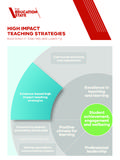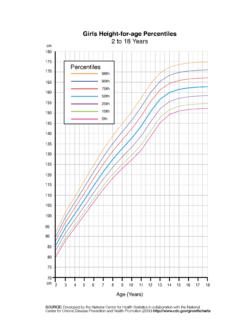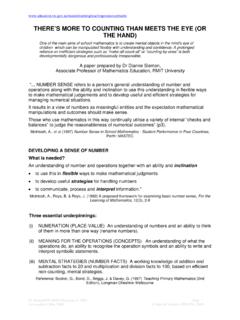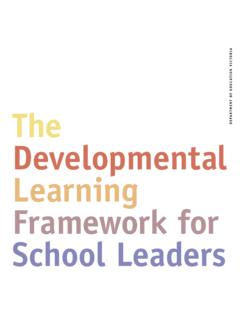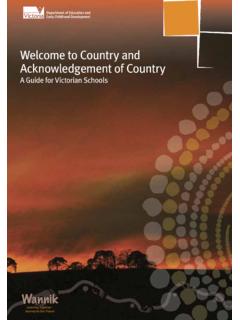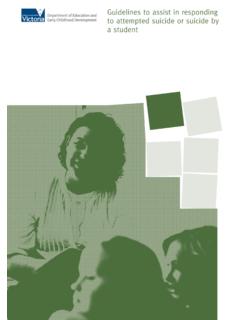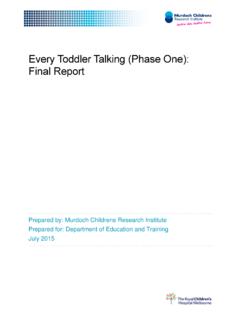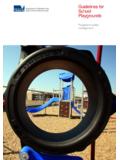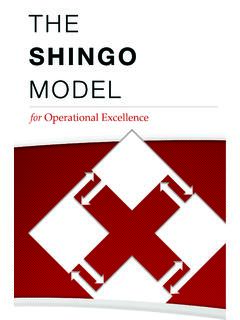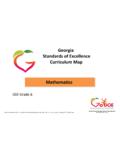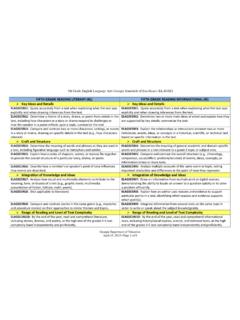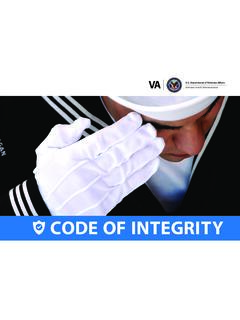Transcription of PRACTICE PRINCIPLES FOR EXCELLENCE IN TEACHING AND …
1 PRACTICE PRINCIPLES FOR. EXCELLENCE IN TEACHING . AND LEARNING. Vision for Learning All students are empowered 1. High expectations for every to learn and achieve, student promote intellectual engagement and self-awareness experiencing high quality TEACHING PRACTICE and the best conditions for learning which equip them with Positive 2. A supportive and productive climate for learning environment promotes the knowledge, skills and learning inclusion and collaboration dispositions for lifelong learning and shaping the world around them. 3. Student voice, agency and leadership empower students and build school pride Curriculum planning Building PRACTICE and assessment EXCELLENCE 4.
2 Curriculum planning and implementation engages and EXCELLENCE in Evidence-based high impact TEACHING TEACHING Evaluating impact on learning challenges all students strategies and learning Student achievement, engagement 5. Deep learning challenges and wellbeing Parents and carers Empowering students and building school pride Positive climate for Community engagement as partners students to construct and apply learning in learning Health and wellbeing Global citizenship EXCELLENCE new knowledge Networks with schools, Setting expectations and promoting inclusion Professional leadership services and agencies in TEACHING Intellectual Building communities and learning engagement and self awareness 6.
3 Rigorous assessment practices Building leadership teams Vision values and culture and feedback inform TEACHING and Instructional Strategic learning and shared resource leadership management 7. Evidence-based strategies drive professional PRACTICE improvement 8. Global citizenship is fostered through real world contexts for learning Community engagement in learning 9. Partnerships with parents and carers enhance student learning First published by the Department of Education and Training Melbourne February 2018, updated October 2020. State of Victoria (Department of Education and Training) 2020. The copyright in this document is owned by the State of Victoria (Department of Education and Training), or in the case of some materials, by third parties (third party materials).
4 No part may be reproduced by any process except in accordance with the provisions of the Copyright Act 1968, the National Education Access Licence for Schools (NEALS) (see below) or with permission. An educational institution situated in Australia which is not conducted for profit, or a body responsible for administering such an institution may copy and communicate the materials, other than third party materials, for the educational purposes of the institution. Authorised by the Department of Education and Training, 2 Treasury Place, East Melbourne, Victoria, 3002. ISBN: 978-0-7594-0827-2. 2 | PRACTICE PRINCIPLES for EXCELLENCE in TEACHING and Learning Acknowledgments The Department of Education and Training (the Department).
5 Acknowledges and pays respects to Elders and all Victorian Aboriginal communities. We honour and respect Traditional Owners, past and present, and value the rich culture and history of the First Peoples of this land. The Department also acknowledges the expertise and commitment of teachers and school leaders in Victorian government schools who work to build TEACHING and learning EXCELLENCE every day. For the preparation of this resource we would like to acknowledge the advice and inspiration provided by Dr Julia Atkin, and valuable contributions from many of our principals and teachers. The PRACTICE PRINCIPLES for EXCELLENCE in TEACHING and Learning is a component of the Victorian TEACHING and Learning Model.
6 The PRACTICE PRINCIPLES draw from the current evidence base, including the following Victorian frameworks and initiatives: Australian Professional Standards for Teachers Education State reform agenda Framework for Improving Student Outcomes New Pedagogies for Deep Learning Community of PRACTICE Professional Learning Communities School Differentiation Model (School Strategic Plan, Annual Implementation Plan, Performance and Development Approach). Victorian Curriculum F-10. Victorian Early Years Learning and Development Framework. PRACTICE PRINCIPLES for EXCELLENCE in TEACHING and Learning | 3. Contents Acknowledgments 3. 6.
7 Why a Vision for Learning and PRACTICE PRINCIPLES ? 7. What is our Vision for Learning? 8. What are the PRACTICE PRINCIPLES ? 8. Who are the PRACTICE PRINCIPLES for? 10. PRACTICE PRINCIPLES overview table 12. 1. High expectations for every student promote intellectual engagement and self-awareness 14. 2. A supportive and productive learning environment promotes inclusion and collaboration 16. 3. Student voice, agency and leadership empower students and build school pride 18. 4. Curriculum planning and implementation engages and challenges all students 20. 5. Deep learning challenges students to construct and apply new knowledge 22.
8 6. Rigorous assessment practices and feedback inform TEACHING and learning 24. 7. Evidence-based strategies drive professional PRACTICE improvement 26. 8. Global citizenship is fostered through real world contexts for learning 28. 9. Partnerships with parents and carers enhance student learning 30. Appendix 1 - PRINCIPLES aligned with Victorian and national frameworks and initiatives 32. PRACTICE PRINCIPLES for EXCELLENCE in TEACHING and Learning | 5. Introduction It may seem obvious that getting to scale with powerful TEACHING and learning for all students requires having and sharing a vision of what that should look like.
9 If after all, you don't agree on where you are trying to get, it is pretty challenging to get there.' 1. In Victoria we are committed to building a world class For teachers and school leaders, linkages between the PRACTICE education system and transforming Victoria into the PRINCIPLES and the Framework for Improving Student Education State. This starts in the early years and relies on Outcomes (FISO) will be clear. Focusing on three FISO priority shared1 outcomes across sectors to support continuity of areas EXCELLENCE in TEACHING and learning, Positive climate learning. It is this commitment towards achieving increased for learning, and Community engagement in learning.
10 Equity and EXCELLENCE at a system level that frames our work teachers and school leaders can guide conversations with as teachers and leaders, but we must draw our focus to what students, parents and school communities about our values happens in every classroom and in every school to make the and our beliefs about TEACHING and learning. These difference for all Victorian students. conversations will help to build consensus around our moral purpose and mobilise partnerships in ways that improve The Victorian TEACHING and Learning Model comprises 4 learning. interrelated components through which EXCELLENCE in TEACHING Working with the PRACTICE PRINCIPLES will deepen the PRACTICE is articulated: an overarching Vision for Learning, professional conversations taking place in Victorian PRACTICE PRINCIPLES , for EXCELLENCE in TEACHING and learning, the government schools, support the development of a shared Pedagogical Model which describes what effective TEACHING language for TEACHING and learning and help us to articulate looks like in the classroom and helps teachers apply the what TEACHING and learning EXCELLENCE looks like.
